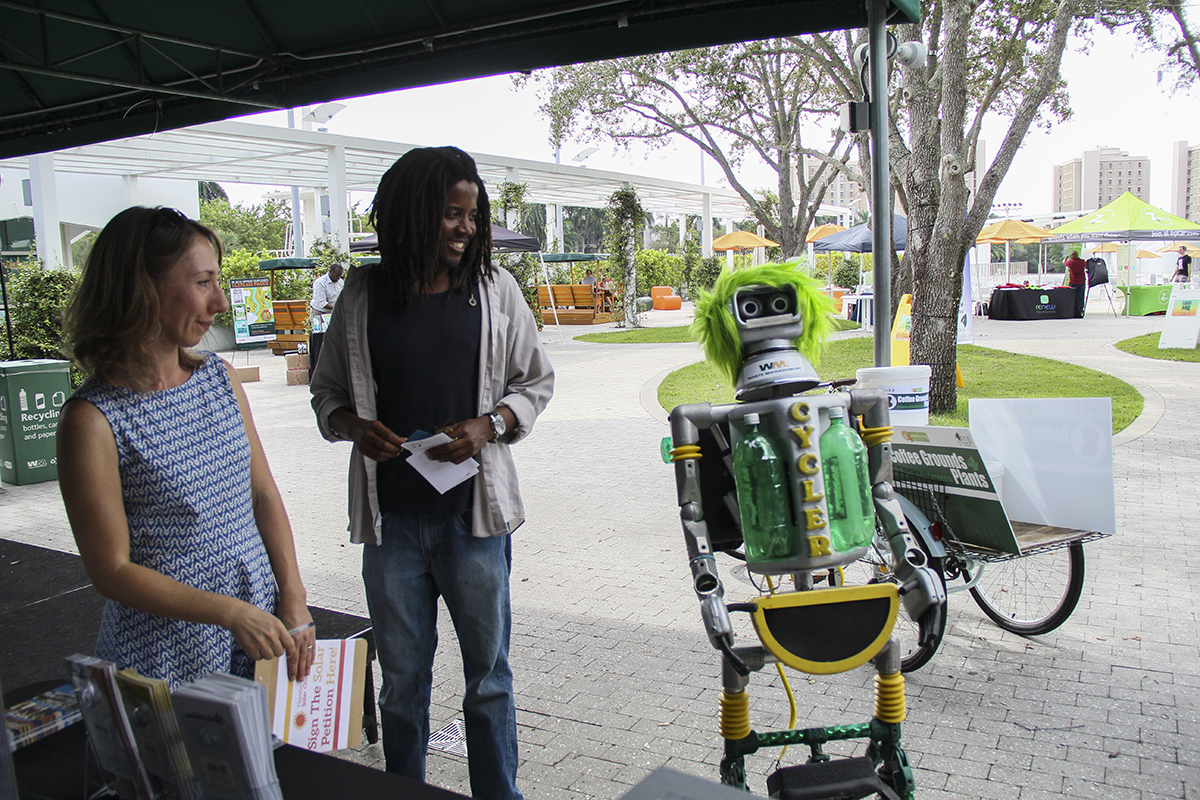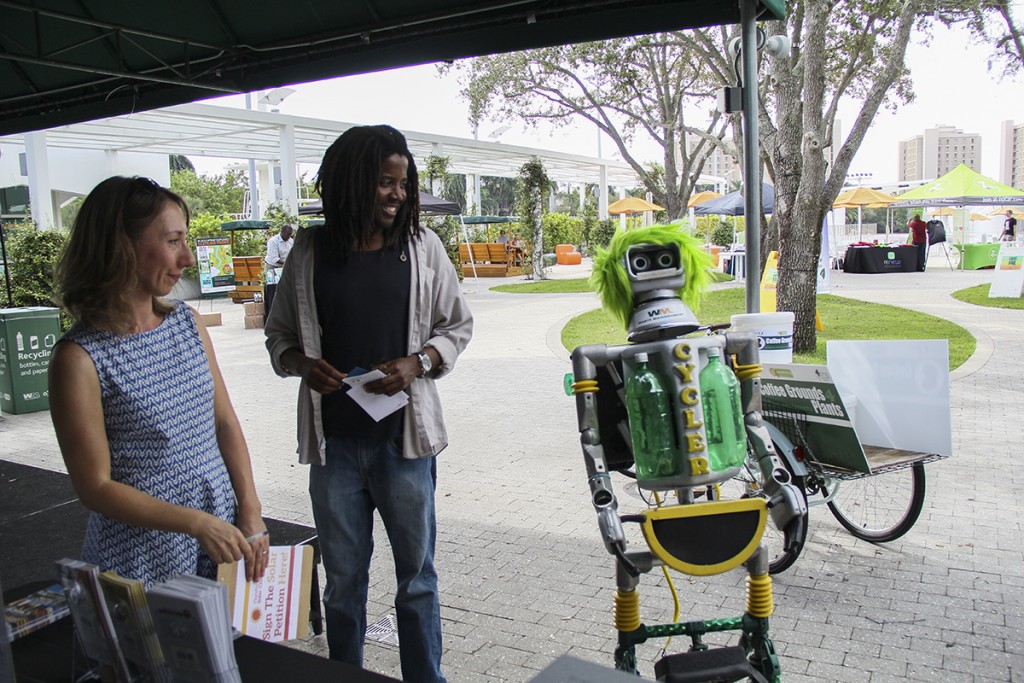

Energy & Conservation Organization (ECO) of Student Government held its annual Green Fair on Nov. 4. As its members walked past the Lakeside Patio, ECO brought a taste of its environmental initiatives to students around campus.
During the event, attendees had the opportunity to learn about recycling, make their own detergent and grocery bags and take a carbon footprint survey, which tracks students’ habits at UM and how they relate to their greenhouse gas emission. The results of the survey will be published in the spring.
“I hope everyone here learns that when they are recycling, everything they recycle has to be rinsed out and that food contamination will ruin an entire canister,” said Eva Muszynski, director of ECO’s Green Committee. “Oftentimes when people think that UM doesn’t recycle, it’s because the bag is actually contaminated because someone threw an entire cup of coffee into the trash can.”
The fair reflected ECO’s goal to educate the UM community about sustainability initiatives and small actions students can take on a daily basis to help the environment that surrounds them.
“The main takeaway is really just to learn how to be more environmentally conscious,” said Nika Hosseini, ECO chair. “We try to promote to students that they should think about things that are not necessarily related to their daily lives. Think about recycling, be an active student and learn more about your surroundings.”
Locations like the dining halls and the UM Bookstore have already started to take measures to introduce eco-friendly practices. UM Dining’s Imperfectly Delicious Produce program establishes a connection between farmers and the university to positively influence the food supply chain.
Krysta Samuel, manager of the Mahoney-Pearson Dining Hall, used a small piece of imperfect broccoli to explain that the broccoli consumers buy in the grocery store is beautified after farmers clip off bits and pieces.
“What we did is we partnered up with the farmer and said, ‘Can we take those little bits of broccoli that you are going to put back into the ground and it will be a waste for you and a waste of water?’” Samuel said. “We purchase the broccoli and we bring them to our dining halls to feature them in our salad bars or in our Menutainment stations, which are set up every Wednesday. I don’t think people at UM realize the impact they are making by eating in our dining halls.”
The UM Bookstore has partnered with Renew Merchandising and will soon start to sell clothing made out of recycled plastic bottles. During the Green Fair, company representatives showcased the designs and gave away green and recycled tote bags.
“We take plastic bottles, put them through a process and make yarn out of them,” said Lorin Buckner, a representative for Renew Merchandising. “The UM bookstore has already ordered a number of products like short sleeve T-shirts, long sleeve T-shirts and button downs. We’re just trying to help disseminate the message and many universities are now on board. Everyone talks about recycling, but the question is what happens after recycling.”
The Green Fair also gave ECO the opportunity to talk about the newly implemented solar panel system on top of the food court.
“I’m so excited about them,” Hosseini said. “Last year, ECO worked a lot to promote clean energy, and a big thing in Florida is, of course, solar panels. We do have them in the new music school building by Hecht-Stanford and we thought it would be amazing to put them in the food court because it is a central location. After a lot of proposals and time, a few days ago the last panels were finally installed. Now we have a huge system in the food court that takes up all the solar energy and converts it into electricity, and it’s all pure clean energy. Hopefully we can extend it into other areas of campus.”






